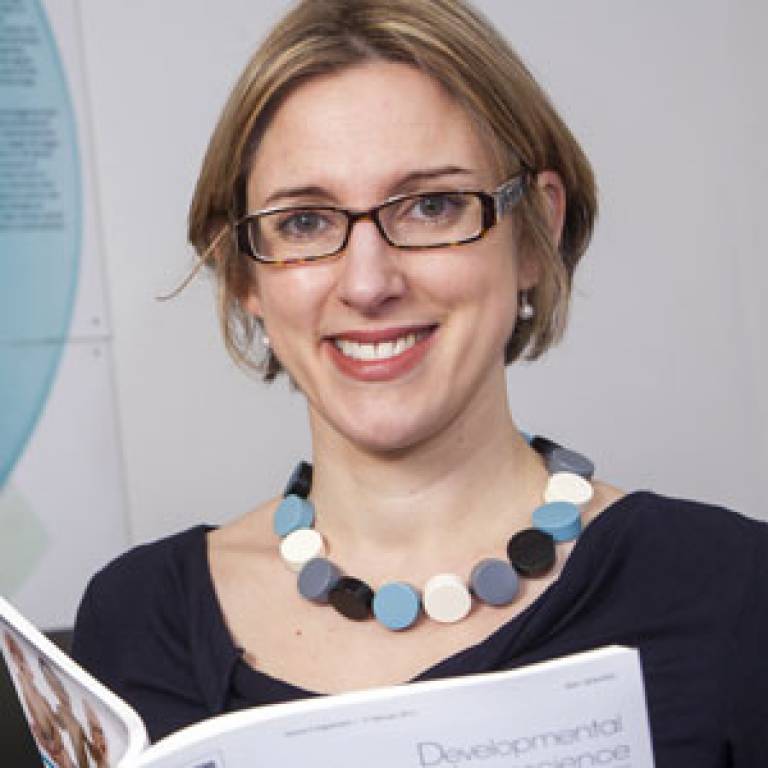UCL professor wins Klaus J. Jacobs Research Prize 2015
1 October 2015
Professor Sarah-Jayne Blakemore (UCL Institute of Cognitive Neuroscience) has today been announced as the recipient of the 2015 Klaus J.
 Jacobs Research Prize for her
research on understanding emotional and social brain development during
adolescence. The award will be presented on 4 December 2015, at an award
ceremony at the University of Zurich in Switzerland.
Jacobs Research Prize for her
research on understanding emotional and social brain development during
adolescence. The award will be presented on 4 December 2015, at an award
ceremony at the University of Zurich in Switzerland.
The Klaus J. Jacobs Research Prize is awarded by the Jacobs Foundation, an international Zurich-based foundation which promotes child and youth development, to recognise exceptional achievements in research and practice in the field of child and youth development. Consisting of one million Swiss francs, the prize acknowledges scientific work of high social relevance to the development of children and young people, particularly findings from interdisciplinary research which can yield practical applications.
Professor Sarah-Jayne Blakemore said: "It is a great honour to be awarded the Klaus J Jacobs Prize. It is truly humbling that my lab's research has been recognized by this prestigious award from the Jacobs Foundation. I am indebted beyond words to my mentors and to all the people who have worked in my team at UCL over the past 13 years, and I am grateful to the many children and young people who have taken part in our studies and the schools that support our research. I am also grateful to the colleagues who nominated me for this award. I feel privileged to work with such inspiring and supportive people."
Focusing on the development of social cognition and decision making during human adolescence, Professor Blakemore's research has helped to overturn the previous held belief that no major neurodevelopmental changes occur after early childhood.
By demonstrating that the brain develops both structurally and functionally during adolescence, Professor Blakemore's work shows that adolescence represents a period of relatively high neural plasticity, particularly in brain regions involved in executive function and social cognition. This has implications for both curriculum design and teaching practice, ensuring that classroom activities utilise periods of neural plasticity to facilitate maximal learning.
Behavioural and brain scanning studies carried out by Professor Blakemore and her team have revealed the changes that happen in the adolescent brain including developments in processing emotional and social information about others, changes in self-awareness and decision-making. The findings show that neural responses to social exclusion, risky decisions and the interpretation of social emotions all develop during the second decade of life.
Her work has
suggested the need to revise the tendency of attributing adolescent behaviour to
hormones and changes in social environment. Instead behaviour can at least be partly
linked to biological developments in the brain that are adaptive, natural, and
inevitable. Therefore as typical adolescent behaviour is intrinsically rooted
in human development, Professor Blakemore's research proposes that it should be
considered as potentially socially beneficial rather than risky and problematic.
Links
- 2015 Klaus J. Jacobs Research Prize
- Professor Sarah-Jayne Blakmore's academic profile
- UCL Institute of Cognitive Neuroscience
- Jacobs Foundation
Image
- Professor Sarah-Jayne Blakemore
Media contact
Siobhan Pipa
Tel: +44 (0)20 7679 9041
Email: s.pipa [at] ucl.ac.uk
 Close
Close

